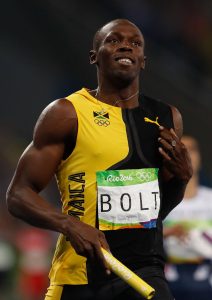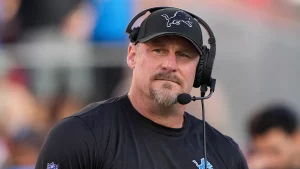
Maple Leafs and fans mourn passing of 1,000-game winger Ron Ellis
Get the latest from Lance Hornby straight to your inbox
Ron Ellis didn’t get his number retired by the Maple Leafs, but having someone’s ‘unretired’ for him was just as respectful to his place in team antiquity.
“When you become a Leaf, you know you are joining history,” said Ellis in 2017. “When I turned pro in 1964, I wanted to be part of the tradition established by Syl Apps, Teeder Kennedy and Charlie Conacher. My teammates, Bob Baun, Dave Keon, Bob Pulford, Johnny Bower, were carrying that, too, and it was obvious I’d better fall into line.”
The steady right winger held that credo through 1,034 games as a Leaf, including its most recent Stanley Cup championship in 1967. Apart from the Leafs, he played only on Team Canada ’72 and was a post-career Hockey Hall of Fame ambassador for decades up to his death, announced Saturday by the team and the NHL Alumni Association.
Ellis, who had dealt with mental and physical challenges the past couple of years, was 79.
“Ron was a true gentleman of the game and will be truly missed,” the club said.
Ellis’s picture was on the video screen at Maple Leaf Square outside Scotiabank Arena on Saturday. An NHL alumni statement said its members are “heartbroken”. In February, at the NHL all-star game in Toronto, an absent Ellis was honoured with its ‘Man of the Year’ Award’ for “countless contributions to his community and the hockey world”.
Hall of Fame teammate Frank Mahovlich echoed the many plaudits coming in from players and fans.
“He certainly was one of the best,” Mahovlich told the Sun. “We’d won three Cups (1962-64), but changes had to be made and he was a nice spark plug. A great person and a great team man, exactly what we needed at that time.”
Mahovlich remembered well that Leafs great Ace Bailey was so impressed with Ellis’ style and dedication that, in 1968, he insisted his retired No. 6 from 34 years earlier be reactivated for Ellis, who switched from No. 8. Ellis would wear it until 1981, hanging up his skates as the fifth-highest in franchise games played, as well as 70 playoff appearances.
He was sixth in points at 640 until passed by Auston Matthews late this season and was voted 24th in the top 100 of all Leafs by a panel for the club’s 2017 centennial.
The Lindsay, Ont.,-born Ellis was the son of a Royal Canadian Air Force crewman who was a Marlboro junior under Harold Ballard. Ron’s career took off when Leafs’ Ottawa-area scout Alex Davidson spotted him dominating a minor bantam game there. New GM/coach Punch Imlach flew to Ottawa to help convince Ellis’ parents to let him join the Marlies. He was part of their ’64 Memorial Cup champions that would include Pete Stemkowski and Mike Walton.
Ellis was called up for one Leafs game that March against Montreal.
“I found myself sitting in the room with the defending Stanley Cup champs,” Ellis said in a foreword to the book Toronto and the Maple Leafs, A City and its Team. “Punch came in and announced the starting lineup “Horton, Stanley, Kelly, Mahovlich … Ellis’.
“A dream night. We won a barn-burner 1-0 on a goal by the Big M. I especially remember both Jean Beliveau and John Ferguson took hooking penalties on me.”
The Leafs and Habs would meet in the ’67 Cup final, the team facing an unlikely shot at the title, but Ellis well-established with 67 games that year.
“We had two groups in that club — the older ones and young guys such as Ron and myself,” forward Brian Conacher told the Sun. “But we showed it’s not the best team that wins, it’s the team that plays the best, which (today’s Leafs) are trying to figure out.
“I had the good fortune to play on a line with Ron and Kelly in that series. In Game 6 (the Cup clincher) he scored the first goal when I was out with him and in Game 5, he was in on a goal on my big night.
“Ron was a terrific player, right out of junior, who fit right in. Almost everyone, other than a guy like Keon, had to go somewhere in the minors first. He was so dependable, not fancy, but that better-than-average (11 seasons with at least 20 goals). He was a Leaf through and through, you knew you’d get an honest night’s work from him. He was loyal and wouldn’t have played anywhere else.”
Ellis would never take for granted getting his name on the ring of the Cup that includes the last Leafs squad, but said on many occasions he’d be glad to see the ‘curse’ lifted after it reached 57 years this month.
It’s also marks the passing of another Team Canada icon. In ’72, Ellis joined Leafs teammate Paul Henderson and centre Bobby Clarke from the Philadelphia Flyers to form an effective line that helped the dramatic comeback in Moscow.
“They were perfect,” said Mahovlich, also a member of that team. “They played so well, the Russians couldn’t handle them.”
Ellis’ production and demeanor managed to keep him on owner Ballard’s good side unlike many Leaf stars who left or were traded in a turbulent era. He was alternate captain to Keon (and was considered for the role himself) as well as an alternate with Darryl Sittler.
“You talk about a true developmental Leaf who signed his ‘C’ card and never moved anywhere,” said Bob Stellick, former business manager of the Leafs. “He spanned a by-gone era.”
Stellick later worked with Ellis in a public relations role at the Hall after it moved from Toronto’s Exhibition Place to a more expansive, modern facility downtown.
“He was such a great ambassador for the Hall,” Stellick said. “He brought a true player’s perspective to what the Hall was all about, how to properly recognize and treat older players. The staff absolutely loved him.”
Ellis was up front about his battle with clinical depression and wrote about it in a 2002 book with Kevin Shea, called Over The Boards. He helped many alumni members with similar struggles.
“He was always available to lend an ear, his heart and help,” the alumni posted. “His contributions philanthropically were global and impactful through his work with many charities and mental health initiatives.”
“He dedicated his life to the Hall and could be found each day smiling while he led guests through the great museum archives proudly. countless contributions to his community and the hockey world. His family was so special to him and was his bright shining light.
“We send our deepest condolences to his wife Jan, son R.J., daughter-in-law Renata, friends and former teammates.”






